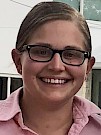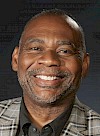AASP Newsletter - July 2020
Advocacy Committee Established to Advance AASP & Field
 Shelby Anderson |
 Sebastian Brueckner |
 Theodore Butryn |
 Joanna Line |
 Ryan Sappington |
 Tanya Prewitt-White |
 Jana Fogaca |
 Rob Owens |
Sebastian Brueckner, PhD, CMPC, Muenster University, Germany
Theodore Butryn, PhD, San Jose State University
Joanna Line, MS, Bowling Green State University
Ryan Sappington, MS, MSc, University of Maryland
Tanya Prewitt-White, PhD, CMPC, University of Illinois-Chicago
Jana Fogaca, PhD, CMPC, University of Wisconsin-Green Bay
Rob Owens, EdD, CSCS, University of Western States
Committed action. This is one of the pillars of our work with our clients. Be it toward enhancing performance, helping them pursue goals, creating a life that is values-driven, or helping them build habits that foster mental health and well-being. Yet, on an organizational level, AASP continues to toil towards its commitment to action and acting on behalf of clients. One memorable “wake-up call” was John Amaechi’s (2018) keynote at AASP’s Annual Conference in Toronto. The provoking, yet resounding sentiment was how organized sport often “overpromised and underdelivered.” Given that sport is an integral part of today’s societies, this missed opportunity to “act on behalf of athletes’ rights and responsible organizational practices” (Heil, 2016, p. 3) is a chance to engage in more advocacy efforts, specifically for AASP as the leading organization in the field of sport and exercise psychology.
The Advocacy Committee was created to respond to these opportunities of committed action within the field. As such, the following were highlighted in the committee’s proposal:
Sport and exercise psychology (SEP) professionals have a unique position and opportunity to identify and ameliorate harm, oppression and/or discrimination occurring in sport and exercise settings due to the individual client and team settings we often work in.
In addition, SEP professionals are privy and/or attune to emotional states, personality traits and organizational dynamics within sport and exercise settings that align us with the ability to intervene and advocate for the rights of individuals and to name, or at best, speak against misconduct and/or maltreatment (Fasting et al., 2007; Prewitt-White, 2019). Therefore, as an association, we have an obligation to ensure members are equipped with appropriate training to intervene, respond and advocate for the well-being of the individuals and organizations we serve. (Owens et al., 2020, p. 1)
While AASP needs to be more active in establishing relevant training programs and educational opportunities that focus on advocacy work, the need for change at the organizational level also calls for all members to act as advocates for their clients and in the field. In the past, some individual members or small caucuses of members have engaged in advocacy efforts to, evoking John Amaechi’s words again, close the “overpromise-under delivery” gap in organized sports and in our society at large.
Some examples include:
- John Amaechi gave the aforementioned keynote speech for AASP at the 2018 Annual Conference in Toronto.
- At that same conference, a motion passed during the business meeting to create a Diversity & Inclusion Division Head position on the Executive Board.
- The Diversity Committee implemented the Diversity in Sport Conference, WE Lead, and other diversity-related programs.
- The Student Social Justice Forum was established in 2020 as a collaborative effort between the Student Social Justice Initiative, and the Advocacy, Diversity, and International Relations Committees.
- A Diversity & Inclusion Council was created in 2018. Composed of AASP members and diversity thought leaders, the council was designed to help institute organizationally inclusive and socially-just practices throughout the association and the communities we serve.
- Diversity and Culture is one of the key competencies (K8) for CMPC certification.
- Articles on issues like the controversial Nike Oregon Project, athlete maltreatment in general, and mental health in high-performance sport have been featured in the AASP Newsletter.
Even while this list is not exhaustive, the void of advocacy being addressed from a holistic perspective, including specific and sustainable actions, at the organizational level has been evident. The Advocacy Committee has been established to help fill this void.
The Advocacy Committee has been off to a running start since it was approved and created during the Spring 2020 Executive Board Meeting in April. The current eight members had just started to formulate plans for educational opportunities and internal and external communication when the current racialized events in society provided an immediate call to action. The committee, which elected Tanya Prewitt-White as its chair, responded to this crisis by helping draft AASP’s official statement and simultaneously collaborated with the Diversity Committee on AASP’s Racial Justice Resource List. At the same time, members still worked on some of the committee start-up tasks such as recruiting additional members, finalizing the committee’s Mission Statement, and creating specific SMART goals that align with AASP’s current Strategic Plan. A final version will soon be published on a newly created committee subpage on the AASP website.
This work will be done in accordance with AASP’s Strategic Plan, in collaboration with other AASP committees such as the Diversity, Ethics, International Relations, Newsletter, and Web Presence Committees, and involve member-driven groups such as the Special Interest Groups.
Specific initiatives that are being prepared to be proposed to the Executive Board include:
- Establishing affinity groups to bring together members with similar backgrounds, social and cultural identities to encourage sharing, support, healing, and mentorship.
- Offering webinars to introduce and engage members in the need for advocacy and intersectional understandings of advocacy work. The webinars will broadly address how to advocate as well as be informative on specific social issues. Our intention is to collaborate with experts in and outside of AASP as well as partner with organizations and agencies.
- Soliciting relevant content for the various formats offered at the Annual Conference that focuses on advocacy efforts to help train, educate, and engage AASP members in this area of expertise.
We, as a committee, are toiling in how to best serve our organization, our members and colleagues, as well as move our organization forward in equity. We are mindful that this is very important work that is nuanced, messy, and integral for change. We also recognize that our committee and the Executive Board cannot do this work alone. It takes every one of us to do our part to ensure sport, society, and our communities a space of self-actualization where all athletes and all people can flourish. As such, once our mission statement is approved, membership will receive an invitation to apply to join our committee. Given the immediate need for action, the number of initiatives we are looking to implement and our openness to new and relevant ideas, it is our goal to add four more members at that time. In the meantime, please send your inquiries, concerns and ideas to Tanya Prewitt-White, Committee Chair at tpw@uic.edu.
Even if you feel like you cannot commit to joining the committee, we would still like to hear your thoughts and ideas regarding advocacy efforts. For all of us currently serving on the committee, advocacy is such an integral part of our professional philosophy, something that guides our day-to-day actions that we truly believe every idea, thought, voice, and action matters, no matter how small it might feel. If we truly want to start closing the “overpromise-under delivery” gap in sport and our societies, each and every action counts.
Resources
The inaugural AASP Advocacy Committee in collaboration with the Diversity Committee has compiled a Resource List on Racial Justice that was published in context of AASP’s Statement “Black Lives Matter” in regard to recent racialized events. While this list will be updated on a regular basis, the current version can be found here.
References
Amaechi, J. (2018). Overpromise & Underdeliver: The Story of Organized Sport. Keynote presented at the annual conference of the Association for Applied Sport Psychology, Toronto, ON, Canada.
Fasting, K., Brackenridge, C., & Walseth, K. (2007). Women athletes' personal responses to sexual harassment in sport. Journal of Applied Sport Psychology, 19(4), 419-433. https://doi.org/10.1080/10413200701599165
Heil, J. (2016). Sport advocacy: Challenge, controversy, ethics, and action. Sport, Exercise, and Performance Psychology, 5(4), 281–295. https://doi.org/10.1037/spy0000078
Owens, R., Bennett, H., Carter, L., Heil, J. & Prewitt-White, T. (2019). Association of Applied Sport Psychology Advocacy Committee Proposal.
Prewitt-White, T. (2019). I was his litmus test: An autoethnographic account of being groomed in sport. Journal of Clinical Sport Psychology, 13(2), 180-195. https://doi.org/10.1123/jcsp.2018-0054



